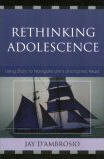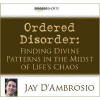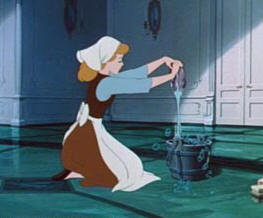
A few years ago, I had a thirteen-year-old student named Darcy. Darcy had faced a great deal of hardship in her young life. Her father wasn’t in the picture at all, and her mother worked three jobs just to make ends meet. Because her mother was never home, Darcy was essentially both mother and father to her two brothers, but her older brother had physically abused her, and her younger brother, though she loved him, needed more than she had to give. She had managed to get herself into quite a bit of trouble in school, by way of fights, shouting matches with teachers, and outbursts. Most likely, she had begun to agree with the voices that told her that she needed to be “tough” to survive, not to “take any crap” from anybody.
One day, I noticed tears streaming down Darcy’s face, and I approached her in the hallway in between classes to see if I could help. As Darcy stood by her locker weeping, I handed her a tissue and asked how things were going. Her eyes said it all. Apparently, Children and Youth Services had already contacted her mother, saying that if Darcy got into any more trouble at school, they would remove her from her home and place her with foster parents. And just that morning she had managed to get into an argument with another girl on the bus, and the girl had gone to the principal’s office and turned Darcy in for harassment.

As she tearfully told me what had happened, I suggested that she go down to the office and tell her side of the story to the principal. It was then that she said, “Mr. D, it won’t do any good. I’m the bad kid. Everybody in the school knows I’m the bad kid.” In other words, she had absorbed the message of the voices: “You’re a bad person.”
What the school community didn’t know about Darcy, and what Darcy probably didn’t even remember about herself, was that a week earlier, she had publicly complimented another student in my classroom. Jen, the student she had complimented, happened to be very shy and awkward. After Jen had given a presentation in front of the other students, I asked if anyone had any questions or comments. Darcy immediately thrust her hand into the air. “I think Jen did a great job! It was an interesting report.” I could immediately tell that Jen was beaming on the inside upon hearing those encouraging words from Darcy.
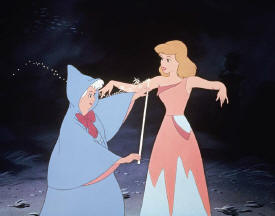
Sensing the despair that Darcy was now feeling, I was faced with a choice. Would I simply pat her on the back and say, “Well, I’m sure everything will work out”? Or would I fight on her behalf? I chose to fight. I challenged the voice that had been labeling her “the bad kid.” I immediately reminded her of the encouragement she had given Jen in the classroom, and what that meant to Jen. At this, she smiled a little. As adults, we must understand how powerful our words are. With our words, we have the power to both hurt and heal. I said, “You see, Darcy, there really is something good and alive inside you.”
I didn’t stop there. Through the use of a story she had probably heard over and over since she was a little girl, I made an appeal to Darcy’s heart. I asked her if she was familiar with the tale of Cinderella. She was indeed. I went on to compare her life now—being forced into a position where she was essentially the caretaker for her brothers and her house—to that of Cinderella, who was forced to scrub and clean by a wicked stepmother and stepsisters. Remember, in the beginning of that story, Cinderella was viewed as a worthless ragamuffin by those around her, and her self-esteem, too, was nonexistent. Like Cinderella, what Darcy probably didn’t realize was that the way people viewed her was not even close to who she really was. It took someone else—her Fairy Godmother—to help Cinderella see who she really was beyond the rags.
When I spoke these words to Darcy, I noticed an ever so slight change in her demeanor. Hope, perhaps? Maybe she saw a little bit of her own story in the medieval tale of Cinderella. My hope is that maybe the thought crossed her mind that she, too, could rise above the opinions and condemnation of others. Stories help the truth sink down into the heart, past the filters of the head.
Labels: adolescence, adolescent, Cinderella, counseling, education, emotions, heart, mental health, mentor, myth, psychology, school, self esteem, story, students, teacher
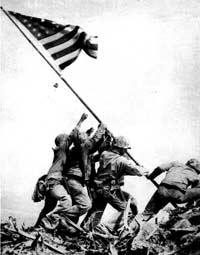 The young people that we work with crave a sense of belonging to something bigger than themselves. Politicians, too, have discovered this longing within their young constituents. In a speech delivered during the 2000 presidential election season, Senator John McCain of Arizona urged young people to remember the sacrifices of the past:
The young people that we work with crave a sense of belonging to something bigger than themselves. Politicians, too, have discovered this longing within their young constituents. In a speech delivered during the 2000 presidential election season, Senator John McCain of Arizona urged young people to remember the sacrifices of the past: What stories have moved you? Did Jack’s ultimate sacrifice for Rose in James Cameron’s movie Titanic bring you to tears? Did you feel something stir in your heart when Braveheart’s William Wallace rallied the warriors of Scotland to fight against the tyranny of the English king? Reconnect with the stories, movies, tales, and fables have lifted you to a higher plane, even if only for a moment. Reread the books. Rent the movies. If you are moved by what you experience, odds are that there is a message there that the young people in your life desperately need to understand.
What stories have moved you? Did Jack’s ultimate sacrifice for Rose in James Cameron’s movie Titanic bring you to tears? Did you feel something stir in your heart when Braveheart’s William Wallace rallied the warriors of Scotland to fight against the tyranny of the English king? Reconnect with the stories, movies, tales, and fables have lifted you to a higher plane, even if only for a moment. Reread the books. Rent the movies. If you are moved by what you experience, odds are that there is a message there that the young people in your life desperately need to understand. Whenever possible, expose young people to the great myths and stories of the world. This would also include movies that stir the soul. The medium is less important than the story. Try to steer discussion toward the main character’s situation prior to the beginning of the journey. The main character is typically nobody the world would consider of any consequence. For instance, Odysseus considered himself to be just one man in the entire world, nothing more. Before his great adventure to the Lonely Mountain, Bilbo Baggins was a mild-mannered hobbit who lived in a pleasant little hole in the ground. Thomas A. Anderson was a lonely “computer geek” prior to stepping out of the Matrix. Perseus was viewed as a mere boy before going on his quest to slay the monstrous Medusa. All great stories are essentially telling the same story. This universal or archetypal story tells of an individual who is initially viewed as insignificant and who, through an arduous journey, is eventually revealed as a hero or heroine.
Whenever possible, expose young people to the great myths and stories of the world. This would also include movies that stir the soul. The medium is less important than the story. Try to steer discussion toward the main character’s situation prior to the beginning of the journey. The main character is typically nobody the world would consider of any consequence. For instance, Odysseus considered himself to be just one man in the entire world, nothing more. Before his great adventure to the Lonely Mountain, Bilbo Baggins was a mild-mannered hobbit who lived in a pleasant little hole in the ground. Thomas A. Anderson was a lonely “computer geek” prior to stepping out of the Matrix. Perseus was viewed as a mere boy before going on his quest to slay the monstrous Medusa. All great stories are essentially telling the same story. This universal or archetypal story tells of an individual who is initially viewed as insignificant and who, through an arduous journey, is eventually revealed as a hero or heroine.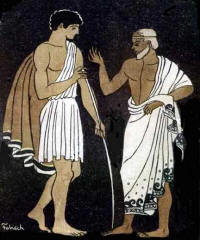 You will never be able to engage adolescents on more than just a surface level if you don’t spend time getting to know them. Often this starts simply by talking about hobbies, sports, movies, music, or whatever they may find of interest. People, in general, enjoy talking about subjects that interest them. Create opportunities for them to share their pursuits and passions in a way that is nonthreatening. A classroom or group setting may suit some students. There are many that would gladly spend hours discussing their zeal for snowboarding, clothes, or video games. However, there is also a multitude that would be reluctant to speak openly about their interests with other students present.
You will never be able to engage adolescents on more than just a surface level if you don’t spend time getting to know them. Often this starts simply by talking about hobbies, sports, movies, music, or whatever they may find of interest. People, in general, enjoy talking about subjects that interest them. Create opportunities for them to share their pursuits and passions in a way that is nonthreatening. A classroom or group setting may suit some students. There are many that would gladly spend hours discussing their zeal for snowboarding, clothes, or video games. However, there is also a multitude that would be reluctant to speak openly about their interests with other students present.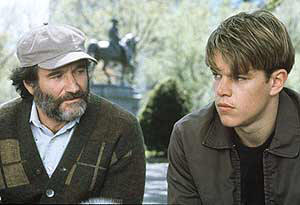 The next time a student approaches you to talk, try maintaining eye contact with her for the duration of your conversation. This may be difficult at first, especially if there are other students clamoring for your attention or if you are in a distracting environment. But your eyes can focus your energies. If you are chatting with someone and he is looking past you, to the side, or anywhere else besides where you are, you know that he is not really there with you in the moment; he is thinking about other people or other things. Why bother opening up to a person who will only catch a small percentage of what you share anyway?
The next time a student approaches you to talk, try maintaining eye contact with her for the duration of your conversation. This may be difficult at first, especially if there are other students clamoring for your attention or if you are in a distracting environment. But your eyes can focus your energies. If you are chatting with someone and he is looking past you, to the side, or anywhere else besides where you are, you know that he is not really there with you in the moment; he is thinking about other people or other things. Why bother opening up to a person who will only catch a small percentage of what you share anyway?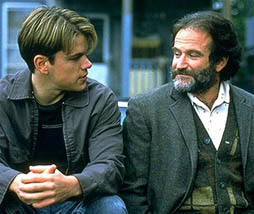 How is this idea of a "mythic journey" communicated to the young people we encounter day to day? How do they come to the understanding that each trial they face presents a choice between hope and despair, possibility and cynicism, bondage and freedom? How do we make them aware of the existence of the journey and how it begins? There is no formula and easy step-by-step set of instructions for doing so. Unfortunately, it doesn’t work that way. Each young person is different and has faced different trials and made different choices in their lives.
How is this idea of a "mythic journey" communicated to the young people we encounter day to day? How do they come to the understanding that each trial they face presents a choice between hope and despair, possibility and cynicism, bondage and freedom? How do we make them aware of the existence of the journey and how it begins? There is no formula and easy step-by-step set of instructions for doing so. Unfortunately, it doesn’t work that way. Each young person is different and has faced different trials and made different choices in their lives.  Solitude is the garden for our hearts, which yearn for love. It is the place where our aloneness can bear fruit. It is the home for our restless bodies and anxious minds. Solitude, whether it is connected with a physical space or not, is essential for our spiritual lives. It is not an easy place to be, since we are so insecure and fearful that we are easily distracted by whatever promises immediate satisfaction. Solitude is not immediately satisfying, because in solitude we meet our demons, our addictions, our feelings of lust and anger, and our immense need for recognition and approval. But if we do not run away, we will meet there also the One who says, "Do not be afraid. I am with you, and I will guide you through the valley of darkness."
Solitude is the garden for our hearts, which yearn for love. It is the place where our aloneness can bear fruit. It is the home for our restless bodies and anxious minds. Solitude, whether it is connected with a physical space or not, is essential for our spiritual lives. It is not an easy place to be, since we are so insecure and fearful that we are easily distracted by whatever promises immediate satisfaction. Solitude is not immediately satisfying, because in solitude we meet our demons, our addictions, our feelings of lust and anger, and our immense need for recognition and approval. But if we do not run away, we will meet there also the One who says, "Do not be afraid. I am with you, and I will guide you through the valley of darkness."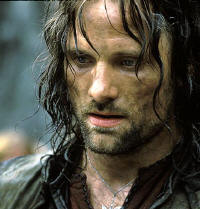 All great stories hinge on the hero’s choice whether to step into adventure or not. Aragorn’s decision to forgo the life of a wandering ranger and embrace the journey set before him makes all the difference in the world to the free peoples of Middle Earth. Lucy’s first step into the wardrobe is the first step toward freedom for the land of Narnia. Marlin’s resolution to search the whole of the ocean for his son Nemo brings healing to a broken relationship and forms the foundations of a new one. Aeneas wills himself to venture from the burning ruins of Troy to found a new and powerful city, Rome. None of these characters see themselves as a central character in their own story. That is revealed only later, as the adventure unfolds. The world desperately needs people who are willing to accept the risk and set out to be difference-makers!
All great stories hinge on the hero’s choice whether to step into adventure or not. Aragorn’s decision to forgo the life of a wandering ranger and embrace the journey set before him makes all the difference in the world to the free peoples of Middle Earth. Lucy’s first step into the wardrobe is the first step toward freedom for the land of Narnia. Marlin’s resolution to search the whole of the ocean for his son Nemo brings healing to a broken relationship and forms the foundations of a new one. Aeneas wills himself to venture from the burning ruins of Troy to found a new and powerful city, Rome. None of these characters see themselves as a central character in their own story. That is revealed only later, as the adventure unfolds. The world desperately needs people who are willing to accept the risk and set out to be difference-makers!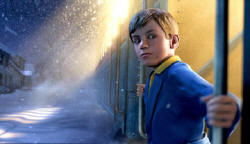 The Polar Express (Van Allsburg 1985) captures this choice that faces the young: to set out or to settle? The hero in the story, a young boy on the verge of adolescence, has awoken one Christmas Eve with a troubling question: Is the magic of Christmas gone? You see, he overheard his parents saying that this Christmas marked “the end of the magic.” Isn’t that a question that we have all asked at one point or another? Where is the magic? Life overwhelms us with schedules, deadlines, and responsibilities. Our hearts crave the magic we encountered when we were young.
The Polar Express (Van Allsburg 1985) captures this choice that faces the young: to set out or to settle? The hero in the story, a young boy on the verge of adolescence, has awoken one Christmas Eve with a troubling question: Is the magic of Christmas gone? You see, he overheard his parents saying that this Christmas marked “the end of the magic.” Isn’t that a question that we have all asked at one point or another? Where is the magic? Life overwhelms us with schedules, deadlines, and responsibilities. Our hearts crave the magic we encountered when we were young. What would a knight be without a dragon to fight? He would merely be a “dude” dressed in a metal suit with nowhere to go! Frodo would have remained simply a hobbit living in the Shire if he had not been confronted with the formidable task of destroying the Dark Lord’s Ring. Alice would have been nothing more than a nice little girl if she hadn’t plunged down the rabbit hole. How can you know for sure that you have what it takes unless you are tested? Once we begin looking at things in this way, we start seeing our lives through the light of myth. The great journey of our life almost always begins with a test and a choice. Neo was offered a choice between the red pill and the blue pill. We too are offered the choice to journey forth or to stay safely within the confines of our four walls.
What would a knight be without a dragon to fight? He would merely be a “dude” dressed in a metal suit with nowhere to go! Frodo would have remained simply a hobbit living in the Shire if he had not been confronted with the formidable task of destroying the Dark Lord’s Ring. Alice would have been nothing more than a nice little girl if she hadn’t plunged down the rabbit hole. How can you know for sure that you have what it takes unless you are tested? Once we begin looking at things in this way, we start seeing our lives through the light of myth. The great journey of our life almost always begins with a test and a choice. Neo was offered a choice between the red pill and the blue pill. We too are offered the choice to journey forth or to stay safely within the confines of our four walls.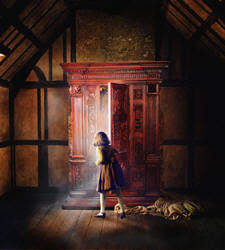 The child who chooses hope will begin to feel the restlessness of a traveler prior to a great adventure. He will begin to understand that maybe the opinions of others are not the final word on who he truly is. We need to prepare students for the moments when they will face these choices. It is crucial that we begin to teach them to see their circumstances through the light of myth and story. We have the opportunity to make them aware of the battle between hope and despair.
The child who chooses hope will begin to feel the restlessness of a traveler prior to a great adventure. He will begin to understand that maybe the opinions of others are not the final word on who he truly is. We need to prepare students for the moments when they will face these choices. It is crucial that we begin to teach them to see their circumstances through the light of myth and story. We have the opportunity to make them aware of the battle between hope and despair.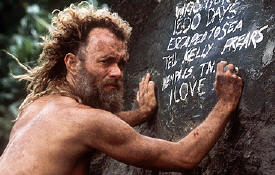 Awareness of the journey often begins when we are in a broken condition, when things are not going our way. Those broken times in our lives occur for just that purpose. They are a wake-up call. When a young person is faced with a painful trial, he is also faced with a choice—a choice between hope and despair. If he chooses despair, he will take one step further along the descending path of cynicism, unhealthy relationships, hesitation, and fear. If he chooses hope, he must acknowledge that there is something greater, that the story of his life has yet to fully unfold. This will take courage, no doubt about it, but as Goethe said, “Be bold, and mighty forces will come to your aid.”
Awareness of the journey often begins when we are in a broken condition, when things are not going our way. Those broken times in our lives occur for just that purpose. They are a wake-up call. When a young person is faced with a painful trial, he is also faced with a choice—a choice between hope and despair. If he chooses despair, he will take one step further along the descending path of cynicism, unhealthy relationships, hesitation, and fear. If he chooses hope, he must acknowledge that there is something greater, that the story of his life has yet to fully unfold. This will take courage, no doubt about it, but as Goethe said, “Be bold, and mighty forces will come to your aid.” A few years ago, I had a thirteen-year-old student named Darcy. Darcy had faced a great deal of hardship in her young life. Her father wasn’t in the picture at all, and her mother worked three jobs just to make ends meet. Because her mother was never home, Darcy was essentially both mother and father to her two brothers, but her older brother had physically abused her, and her younger brother, though she loved him, needed more than she had to give. She had managed to get herself into quite a bit of trouble in school, by way of fights, shouting matches with teachers, and outbursts. Most likely, she had begun to agree with the voices that told her that she needed to be “tough” to survive, not to “take any crap” from anybody.
A few years ago, I had a thirteen-year-old student named Darcy. Darcy had faced a great deal of hardship in her young life. Her father wasn’t in the picture at all, and her mother worked three jobs just to make ends meet. Because her mother was never home, Darcy was essentially both mother and father to her two brothers, but her older brother had physically abused her, and her younger brother, though she loved him, needed more than she had to give. She had managed to get herself into quite a bit of trouble in school, by way of fights, shouting matches with teachers, and outbursts. Most likely, she had begun to agree with the voices that told her that she needed to be “tough” to survive, not to “take any crap” from anybody. As she tearfully told me what had happened, I suggested that she go down to the office and tell her side of the story to the principal. It was then that she said, “Mr. D, it won’t do any good. I’m the bad kid. Everybody in the school knows I’m the bad kid.” In other words, she had absorbed the message of the voices: “You’re a bad person.”
As she tearfully told me what had happened, I suggested that she go down to the office and tell her side of the story to the principal. It was then that she said, “Mr. D, it won’t do any good. I’m the bad kid. Everybody in the school knows I’m the bad kid.” In other words, she had absorbed the message of the voices: “You’re a bad person.” Sensing the despair that Darcy was now feeling, I was faced with a choice. Would I simply pat her on the back and say, “Well, I’m sure everything will work out”? Or would I fight on her behalf? I chose to fight. I challenged the voice that had been labeling her “the bad kid.” I immediately reminded her of the encouragement she had given Jen in the classroom, and what that meant to Jen. At this, she smiled a little. As adults, we must understand how powerful our words are. With our words, we have the power to both hurt and heal. I said, “You see, Darcy, there really is something good and alive inside you.”
Sensing the despair that Darcy was now feeling, I was faced with a choice. Would I simply pat her on the back and say, “Well, I’m sure everything will work out”? Or would I fight on her behalf? I chose to fight. I challenged the voice that had been labeling her “the bad kid.” I immediately reminded her of the encouragement she had given Jen in the classroom, and what that meant to Jen. At this, she smiled a little. As adults, we must understand how powerful our words are. With our words, we have the power to both hurt and heal. I said, “You see, Darcy, there really is something good and alive inside you.” We have the opportunity to show students that life is a journey of mythical proportions. We need to let them know we understand that the hardships they face—even though they might seem trivial to us, with our longer experience—are very important and very real to them. We can show them how to view their challenges and trials as something greater, as smaller skirmishes in the cosmic battle between hope and despair. They long to know that they have an authentic and meaningful place in the story. The stories we loved as a child and that still touch us as adults hold the answers we seek.
We have the opportunity to show students that life is a journey of mythical proportions. We need to let them know we understand that the hardships they face—even though they might seem trivial to us, with our longer experience—are very important and very real to them. We can show them how to view their challenges and trials as something greater, as smaller skirmishes in the cosmic battle between hope and despair. They long to know that they have an authentic and meaningful place in the story. The stories we loved as a child and that still touch us as adults hold the answers we seek.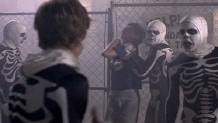 Adolescents often verbalize those statements that they’ve agreed with, declaring that they are “unlucky” or “dumb.” It would be easy to dismiss those sentiments as nothing more than teen angst, but let’s look at what is really happening on a deeper level. For example, if Danielle is spurned by a boy that she really likes, she might be presented with the lie that she is “unlovable” or “unattractive.” If she, in her mind and heart, agrees with this assessment—however absurd—she will begin to behave as if she were unlovable or unattractive. This behavior in turn will invite others to treat her in the same way. In essence, we teach others how to treat us. When Danielle hears these messages from both herself and others around her, she may be tempted to evaluate other situations in her life through the same discouraging lens.
Adolescents often verbalize those statements that they’ve agreed with, declaring that they are “unlucky” or “dumb.” It would be easy to dismiss those sentiments as nothing more than teen angst, but let’s look at what is really happening on a deeper level. For example, if Danielle is spurned by a boy that she really likes, she might be presented with the lie that she is “unlovable” or “unattractive.” If she, in her mind and heart, agrees with this assessment—however absurd—she will begin to behave as if she were unlovable or unattractive. This behavior in turn will invite others to treat her in the same way. In essence, we teach others how to treat us. When Danielle hears these messages from both herself and others around her, she may be tempted to evaluate other situations in her life through the same discouraging lens. happens next? A subtle voice speaking in your mind delivers a disparaging message—a fiery dart aimed right at your heart—suggesting:
happens next? A subtle voice speaking in your mind delivers a disparaging message—a fiery dart aimed right at your heart—suggesting: It is fairly easy to recognize how adolescents are attempting to protect themselves—you need only observe their actions. Does Jared sigh when you ask him to do something? Does Ashley roll her eyes when she doesn’t get her way? Is Derek constantly seeking attention in inappropriate ways? Does Josh avoid eye contact or turn away when you try to talk to him? Is Tamika unusually shy or quiet? Does Anna often make sarcastic comments? Is Marcus constantly struggling to fit into one group or another, perhaps by changing his clothing style or hair? These are just a few signs that a young person has been wounded by the negative messages that have been hurled with such fury by both people and situations. These messages often arrive in a way that is so subtle and so sinister that most young people (and adults) are completely unaware of when happens.
It is fairly easy to recognize how adolescents are attempting to protect themselves—you need only observe their actions. Does Jared sigh when you ask him to do something? Does Ashley roll her eyes when she doesn’t get her way? Is Derek constantly seeking attention in inappropriate ways? Does Josh avoid eye contact or turn away when you try to talk to him? Is Tamika unusually shy or quiet? Does Anna often make sarcastic comments? Is Marcus constantly struggling to fit into one group or another, perhaps by changing his clothing style or hair? These are just a few signs that a young person has been wounded by the negative messages that have been hurled with such fury by both people and situations. These messages often arrive in a way that is so subtle and so sinister that most young people (and adults) are completely unaware of when happens.
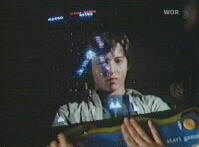 Stepping into my own time machine, I remember when my parents and I went to a “Meet the Principals” night at my middle school prior to the beginning of the new school year. The principal and assistant principal spoke in glowing terms about the clubs and activities available at the middle school. I had always been interested in computers and creating basic video games, so when I heard that there was a computer club, I was in my glory! I was excited about starting the new school year, thinking that I would have the opportunity to develop and expand my computer skills.
Stepping into my own time machine, I remember when my parents and I went to a “Meet the Principals” night at my middle school prior to the beginning of the new school year. The principal and assistant principal spoke in glowing terms about the clubs and activities available at the middle school. I had always been interested in computers and creating basic video games, so when I heard that there was a computer club, I was in my glory! I was excited about starting the new school year, thinking that I would have the opportunity to develop and expand my computer skills. I have to admit my heart sank a little that day. It was hard to enjoy what we learned that afternoon in computer club, and that ended up being the only meeting I attended. Can you believe it? Just because of what one lousy eighth grader said? I remember laying in bed that night, starring at the ceiling, thinking about other things that I could “get into” that would be “cooler” than computers. Regardless of what the little “sticks and stones” rhyme tries to teach, words really are powerful. Looking at this event some twenty years later, I am able to see it for what it was. But at that moment in my life, I swallowed the lie hook, line, and sinker! It doesn’t take a huge, traumatic event to wound the heart of an adolescent. It can be something seemingly benign. Thus, I became a little more cynical that day and, in the process, let go of something about which I was passionate, out of the fear of rejection and the opinions of others. Cynicism is really just a dysfunctional way of protecting our hearts from disappointment and hurt. It can be absolutely debilitating.
I have to admit my heart sank a little that day. It was hard to enjoy what we learned that afternoon in computer club, and that ended up being the only meeting I attended. Can you believe it? Just because of what one lousy eighth grader said? I remember laying in bed that night, starring at the ceiling, thinking about other things that I could “get into” that would be “cooler” than computers. Regardless of what the little “sticks and stones” rhyme tries to teach, words really are powerful. Looking at this event some twenty years later, I am able to see it for what it was. But at that moment in my life, I swallowed the lie hook, line, and sinker! It doesn’t take a huge, traumatic event to wound the heart of an adolescent. It can be something seemingly benign. Thus, I became a little more cynical that day and, in the process, let go of something about which I was passionate, out of the fear of rejection and the opinions of others. Cynicism is really just a dysfunctional way of protecting our hearts from disappointment and hurt. It can be absolutely debilitating.
 inevitably follow these trials flow like acid rain. You are too short or too tall. You are too fat or too skinny. You’ll never get it right. You are ugly. You are too slow, too dumb, too smart. You’ll never amount to anything. Nobody wants to be your friend. Nobody likes you. Your nose is too big. Your ears stick out. You are gay. You are weak. More often than not, these assailing voices echo into adulthood, resulting in individuals who live in fear, anxiety, depression, cynicism, or a state of perpetual anger. If you think I’m kidding, take a good hard look at the adults in your life, your friends, and your family. If you created a list of the fearful, hesitant, anxious, depressed, and cynical people in your life, how long would it be? This would also be a good time to launch an introspective look into your own heart.
inevitably follow these trials flow like acid rain. You are too short or too tall. You are too fat or too skinny. You’ll never get it right. You are ugly. You are too slow, too dumb, too smart. You’ll never amount to anything. Nobody wants to be your friend. Nobody likes you. Your nose is too big. Your ears stick out. You are gay. You are weak. More often than not, these assailing voices echo into adulthood, resulting in individuals who live in fear, anxiety, depression, cynicism, or a state of perpetual anger. If you think I’m kidding, take a good hard look at the adults in your life, your friends, and your family. If you created a list of the fearful, hesitant, anxious, depressed, and cynical people in your life, how long would it be? This would also be a good time to launch an introspective look into your own heart. If you have seen the faces of new middle school students upon their initial arrival at school that dreadful first day, you will have seen that they seem like deer caught in headlights! After a day of hearing unending rules and regulations, struggling to remember locker combinations, getting lost in vast hallways, and searching in vain for a familiar face in the cafeteria, many students come away with the impression that they, like Odysseus, have been cursed!
If you have seen the faces of new middle school students upon their initial arrival at school that dreadful first day, you will have seen that they seem like deer caught in headlights! After a day of hearing unending rules and regulations, struggling to remember locker combinations, getting lost in vast hallways, and searching in vain for a familiar face in the cafeteria, many students come away with the impression that they, like Odysseus, have been cursed!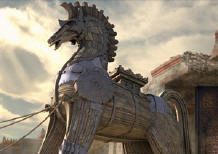 Students often enter their adolescent years with a rather overblown confidence. They finish elementary school with a sense that things operate according to a certain order, an established pattern. After five or six years of regular movement through the elementary program, they find themselves at the top of the pecking order. Physical changes heretofore have occurred at a fairly regular pace, allowing them to feel comfortable with their bodies. Metaphorically speaking, we could say that at this point that they have won the Trojan War Homer so majestically describes in his Iliad. Cocky and selfconfident, students who are moving into the adolescent years have no idea of the frightening odyssey that awaits them!
Students often enter their adolescent years with a rather overblown confidence. They finish elementary school with a sense that things operate according to a certain order, an established pattern. After five or six years of regular movement through the elementary program, they find themselves at the top of the pecking order. Physical changes heretofore have occurred at a fairly regular pace, allowing them to feel comfortable with their bodies. Metaphorically speaking, we could say that at this point that they have won the Trojan War Homer so majestically describes in his Iliad. Cocky and selfconfident, students who are moving into the adolescent years have no idea of the frightening odyssey that awaits them!
 The true self isn’t discovered overnight. It’s important to remember that. Nearly every myth puts forth the story of a character who goes on a journey or quest. The Greek hero Perseus went on a quest to slay the Gorgon Medusa before he could rescue the princess Andromeda. Alice tumbled down a rabbit hole into the mystery of Wonderland. Siegfried traversed the perils of Isenland to awaken the sleeping Valkyrie, Brunhild. After a long journey to London, the young foster-child Arthur pulled the sword from the stone, revealing his true identity as the God-ordained King of All Britain. Frodo had to venture forth to destroy the Ring of Power in the fires of Mount Doom. The Sumerian hero Gilgamesh searched for the secret of immortality. Journeying toward a goal is an essential aspect of all myths and legends.
The true self isn’t discovered overnight. It’s important to remember that. Nearly every myth puts forth the story of a character who goes on a journey or quest. The Greek hero Perseus went on a quest to slay the Gorgon Medusa before he could rescue the princess Andromeda. Alice tumbled down a rabbit hole into the mystery of Wonderland. Siegfried traversed the perils of Isenland to awaken the sleeping Valkyrie, Brunhild. After a long journey to London, the young foster-child Arthur pulled the sword from the stone, revealing his true identity as the God-ordained King of All Britain. Frodo had to venture forth to destroy the Ring of Power in the fires of Mount Doom. The Sumerian hero Gilgamesh searched for the secret of immortality. Journeying toward a goal is an essential aspect of all myths and legends. 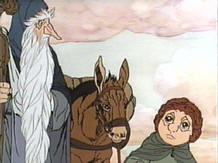 The young people that we work with and love must be made aware of the importance of the journey, and that life is more than just random, meaningless events. They need to know that the journey is good, even if it is often painful. Their journey, their story, as Tolkien suggests, intersects with the stories of countless others, comprising the Great Story begun at the moment of Creation. We have an opportunity to intersect with and influence the journey of the young, and they will in turn add to our own story, and we will become better for it. They need to know that the journey will reveal their true identity, the person that the world so desperately needs them to be. We will begin to see this as well.
The young people that we work with and love must be made aware of the importance of the journey, and that life is more than just random, meaningless events. They need to know that the journey is good, even if it is often painful. Their journey, their story, as Tolkien suggests, intersects with the stories of countless others, comprising the Great Story begun at the moment of Creation. We have an opportunity to intersect with and influence the journey of the young, and they will in turn add to our own story, and we will become better for it. They need to know that the journey will reveal their true identity, the person that the world so desperately needs them to be. We will begin to see this as well.
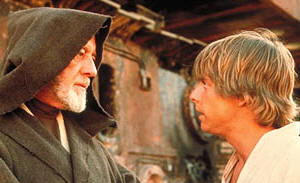 Something else we can observe from myths is that the true, luminescent self cannot be released without help. The book of Genesis says that we were made in the image of God. However, it often takes the eyes of another to see beyond our exterior features, to see the greatness that we possess deep within. The Ugly Duckling would have never realized his noble heritage without the recognition of the other swans. Where would the Karate Kid have been without Mr. Miyagi? Morpheus believed in Neo, allowing him to have the confidence that he really was the One. Luke Skywalker was mentored by Obi-Wan Kenobi, and then trained by Yoda, before he could assume the mantle of Jedi Knight. The adolescents in our lives need us to fill the role of mentor, counselor, confidant, and friend. They need someone to believe in them, to see them mythically. They need someone to know that they have what it takes to be heroic in the tale that is being laid out before them. As we begin this new year, let us commit to seeking out the real person behind the mask!
Something else we can observe from myths is that the true, luminescent self cannot be released without help. The book of Genesis says that we were made in the image of God. However, it often takes the eyes of another to see beyond our exterior features, to see the greatness that we possess deep within. The Ugly Duckling would have never realized his noble heritage without the recognition of the other swans. Where would the Karate Kid have been without Mr. Miyagi? Morpheus believed in Neo, allowing him to have the confidence that he really was the One. Luke Skywalker was mentored by Obi-Wan Kenobi, and then trained by Yoda, before he could assume the mantle of Jedi Knight. The adolescents in our lives need us to fill the role of mentor, counselor, confidant, and friend. They need someone to believe in them, to see them mythically. They need someone to know that they have what it takes to be heroic in the tale that is being laid out before them. As we begin this new year, let us commit to seeking out the real person behind the mask!


